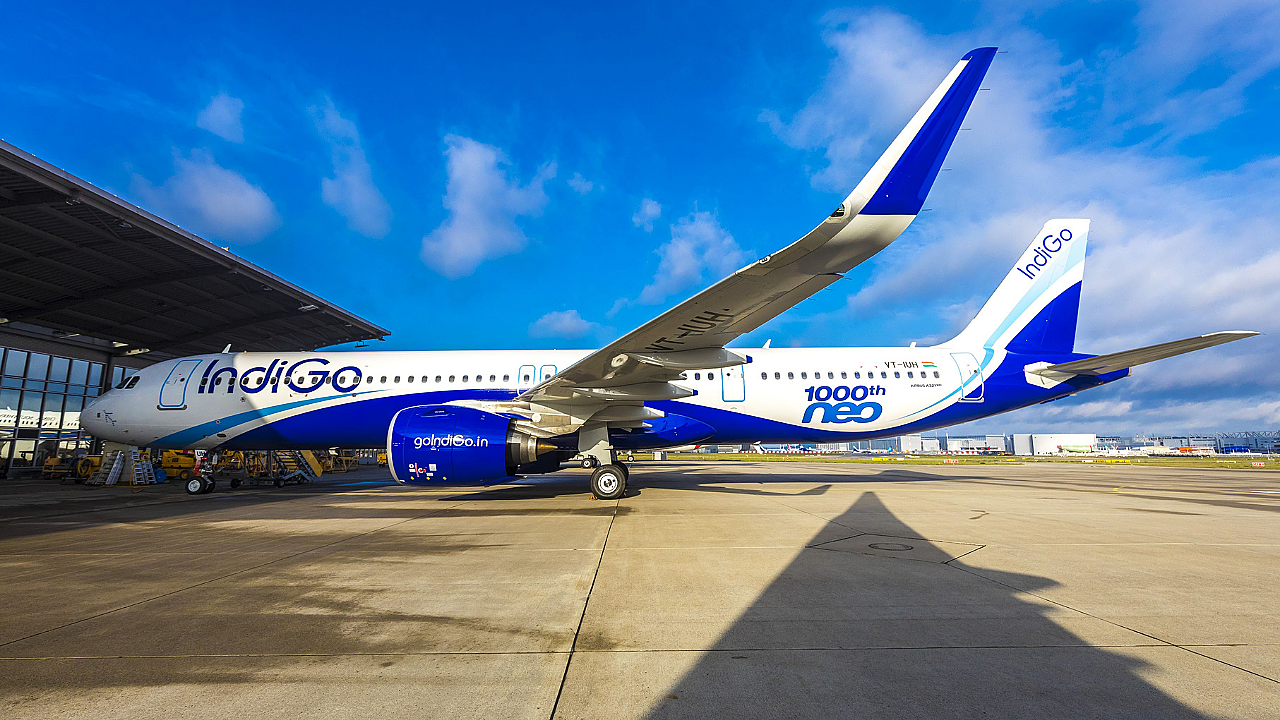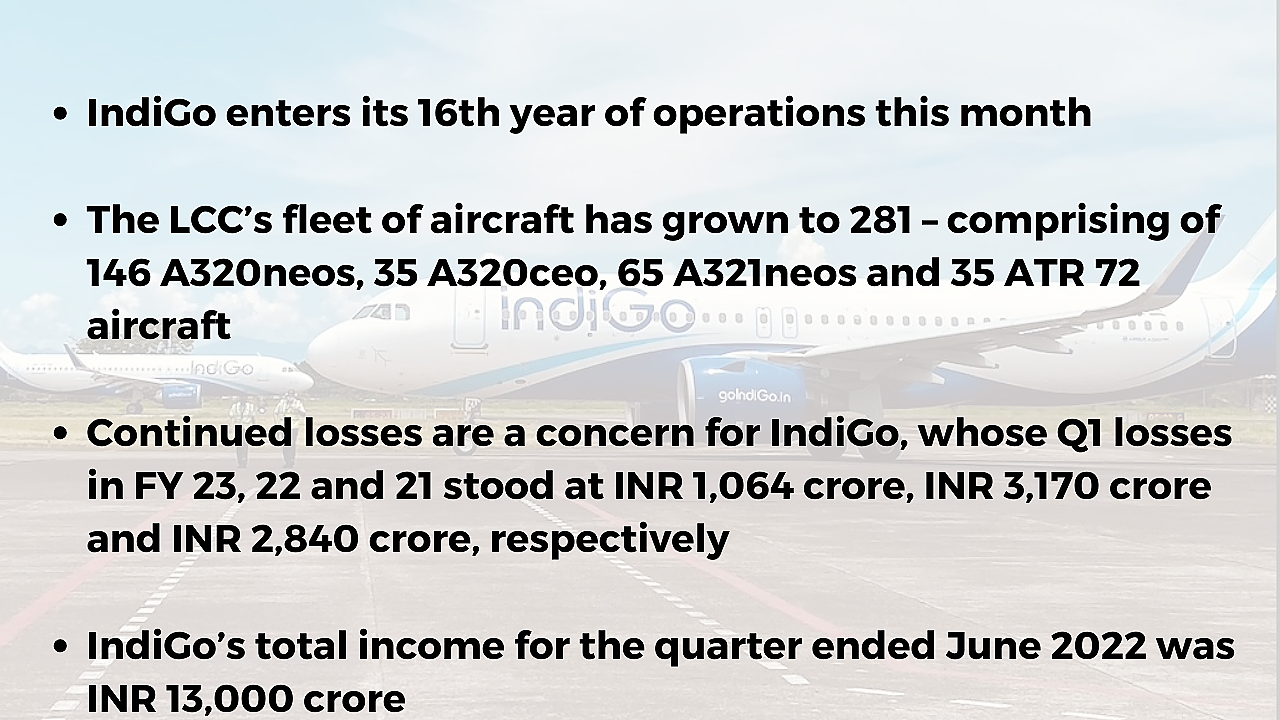
In its 16th year of operations, IndiGo appears in a seemingly impregnable position with a dominant share of India’s domestic aviation market. The airline has navigated India’s challenging aviation market with ease that seems to elude its competition and is now poised to benefit from the strong recovery in domestic air traffic. However, the Indian commercial aviation industry is characterised by dramatic reversals in an airline’s fortunes and predicting the future for any airline, even one as highly successful as IndiGo, is a tricky endeavour.
For sure, IndiGo is facing its own challenges, and the airline appears to have alienated its employees with an ill-advised decision to delay in restoration of salaries to pre-COVID levels. The airline has now said that it will restore the salary of its pilots before the end of the year.
Outgoing CEO, Ronojoy Dutta speaking during IndiGo’s Q1FY23 results conference call, said, “Our core strength continues to be our highly skilled and engaged employees who support our growth plans and enable us to deliver a consistent high-quality product. We are grateful for the dedication and loyalty that our employees have demonstrated throughout the difficult times.” It remains to be seen if this imbroglio will result in experienced IndiGo personnel leaving the airline to join competitors such as Akasa Air or Air India.
IndiGo does have a breather with competing airlines such as SpiceJet mired in its own woes, and Go First is unlikely to ever present a major challenge to IndiGo. Akasa Air, which is soon to start operations (first commercial flight on August 7) will require time to grow into a viable competitor, while Air India is presently focused on consolidating its operations and will be able to challenge IndiGo on domestic routes only by 2025. IndiGo also has the cushion of one of the best cost structures in the industry, a laser-sharp focus on costs and large orders for the newest and most fuel-efficient single-aisle jetliners in the A320neo, A321neo and A321 Xtra Long Range (XLR).
Continued Losses
Unfortunately for IndiGo, its efforts to return to profitability have been stymied by several issues. In its latest results for Q1FY23, a depreciating rupee and higher fuel prices deepened its losses. Fuel prices for the quarter increased by nearly 96% to INR 123.17, double that of INR 63.10 in Q1FY22. (Average fuel price announced by IOC for domestic airlines for Delhi, Mumbai, Kolkata and Chennai).
IndiGo announced a net loss of INR 1,064 crore in the quarter against a loss of INR 3,170 crore in Q1FY22 and losses of INR 2,840 crore in Q1FY21. At its peak, the Low-Cost Carrier (LCC) operated 1,667 daily flights during Q1FY23, including non-scheduled flights. Its total income for the quarter was INR 13,000 crore. “While the losses of the last two years have adversely impacted our balance sheet, we continue to maintain healthy free cash and have a good visibility in terms of our financing initiatives,” said IndiGo’s CFO, Gaurav Negi. Its total debt, including capitalised operating lease liability, now stands at INR 39,277 crore.
Dutta warned that the upcoming second quarter is seasonally the weakest quarter for the airline. “Given this seasonal weakness we do anticipate the second quarter revenue performance to decline sequentially but as of date we do not see any evidence of revenue weakness apart from seasonality. Unfortunately, the seasonal revenue decline, coupled with high costs, will lead to profitability challenges,” he said.
Negi said the airline expects to increase its capacity to 70-80% YoY in the September quarter. “We are focusing on continuously strengthening our customer base, our fleet, our network and our employee talent pool. Fuel and forex continue to be challenges but once these normalise we should return to profitability.”
Dutta remains optimistic about the future. “Our long-term prospects are highly encouraging. We continue to see robust growth across the network and our expansion is being accompanied by high growth in connecting traffic,” he said.
Dutta retires from IndiGo on September 30, and Pieter Elbers will take over as the airline’s CEO on October 1. Elbers is presently President & CEO of KLM Royal Dutch Airlines and a member of the Executive Committee of the Air France – KLM Group. Another change at IndiGo is the appointment of Dr Venkataramani Sumantran as its Chairman. Dr Sumantran has been an Independent Non-Executive Director of the IndiGo Board since May 28, 2020 and succeeds Meleveetil Damodaran, who stepped down as an Independent Non-Executive Director in May.

Growing Network
IndiGo has resumed scheduled international operations to most of its pre-COVID destinations and is roughly operating at pre-COVID levels. The Kingdom of Bahrain became IndiGo’s 25th international destination and the first post-COVID addition when the LCC commenced operations from Mumbai to Bahrain on August 1; it now services 99 destinations. Dutta said plans are afoot to begin flights to Ras Al Khaimah soon, and it will also connect Bahrain with other Indian cities starting October. The airline had added Deoghar as its 74th domestic destination earlier this year.
It would not be out of place to say that IndiGo is the best placed amongst all Indian carriers when it comes to aircraft orders and delivery schedules. IndiGo’s A321 Xtra Long Range (XLR) is expected to arrive in 2024-2025. The long-range single-aisle jetliner will be a game changer for IndiGo as it will allow it to capture nonstop international traffic, which is currently only served through one-stop competing hubs. The A321 XLR will be able to seat up to 244 passengers and fly up to 8,700 km. IndiGo’s present A320neos can seat 222 passengers.
“We continue to remain bullish about our future and this is reflected in our fleet order. We are also excited about the opportunities in the Cargo market and are looking forward for the commencement of commercial operations of our first two freighters in October 2022,” Dutta said. The company is acquiring four A321P2F (Passenger-to-Freighter conversion) aircraft, which are being converted through a programme involving ST Engineering and Airbus with their joint venture, Elbe FlugzeugWerke. The A321P2F will carry a payload of up to 27 tonne.
IndiGo has also largely replaced its less fuel-efficient A320ceo (current engine option) aircraft with newer and more fuel-efficient A320neos (new engine option). IndiGo’s fleet of A320ceos, which stood at 72 aircraft at the end of September 2021, has now reduced to 35 aircraft (as of end June). Its fleet now comprises 146 A320neos, 35 A320ceo, 65 A321neos and 35 ATR 72 aircraft. Out of IndiGo’s total aircraft fleet of 281 aircraft, 267 are on operating lease and 14 aircraft are either owned by the airline or on operating lease.